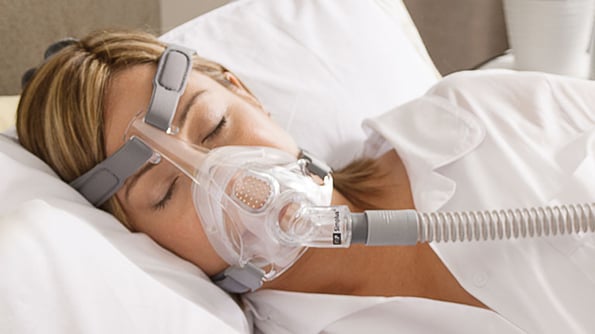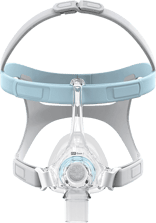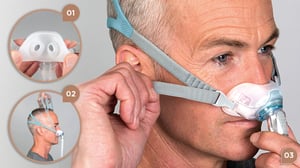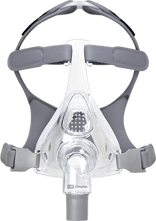Blog
- snoring (27)
- apnoea (20)
- sleep study (10)
- apnea (9)
- CPAP (7)
- Sleep studies (7)
- weight gain (6)
- sleep deprivation (5)
- sleep disorders (5)
- surgery for apnoea (5)
- diabetes (4)
- sleep apnoea (4)
- OAT (3)
- OSA (3)
- Pregnancy (3)
- Snore (3)
- children (3)
- heart disease (3)
- hypertension (3)
- in home sleep studies (3)
- obesity (3)
- polysomnogram (3)
- surgery for apnea (3)
- ADHD (2)
- Alzheimers (2)
- CPAP treatment (2)
- Gladstone CPAP (2)
- PSG (2)
- UPPP (2)
- apnea pregnancy (2)
- apnoea pregnancy (2)
- apnoea surgery (2)
- blood pressure (2)
- cognitive impairment (2)
- cpap supplies brisbane (2)
- cpap therapy (2)
- dementia (2)
- dental treatment for apnoea (2)
- dental treatment for snoring (2)
- diabetic peripheral neuropathy (2)
- driving (2)
- holiday (2)
- in home sleep study (2)
- kids (2)
- menopause (2)
- obstructive sleep apnoea (2)
- oral appliance therapy (2)
- sleep (2)
- sleep apnoea and weight (2)
- sleep apnoea study (2)
- sleep apnoea women (2)
- sleep clinics (2)
- sleep disordered breathing (2)
- sleeping tips (2)
- type 2 diabetes (2)
- Apnea Winter (1)
- Apnoea Winter (1)
- Apnoea and heart disease (1)
- Brisbane sleep study (1)
- CPAP Supplies (1)
- CPAP effectiveness (1)
- CPAP success rate (1)
- Christmas (1)
- Coal Board Medical (1)
- Coal Board Medicals (1)
- Depression (1)
- Emerald sleep clinic (1)
- Festive Season (1)
- Frequent Urination (1)
- Gladstone sleep study (1)
- Gladtone sleep studies (1)
- IQ (1)
- Nocturia (1)
- Nocturia Causes (1)
- OSA and obesity (1)
- Obstructive Sleep Apnoea and Cancer (1)
- Patient feedback on CPAP (1)
- SDB (1)
- Sleep Apnoea Treatment Leads To Cost Savings (1)
- Sleep and Depression (1)
- Sleep and pain (1)
- Sleep-related Breathing Disorder treatment (1)
- Sleeping on a plane (1)
- UARS (1)
- Upper Airway Resistance Syndrome (1)
- accupressure (1)
- accupressure treatment for snoring (1)
- alarm (1)
- alzheimers disease (1)
- anti snoring (1)
- apnea and cancer (1)
- apnea cognitive impairment (1)
- apnea dementia (1)
- apnea depression (1)
- apnea diabetes obesity cancer (1)
- apnea surgery (1)
- apnea treatment (1)
- apnoea cognitive impairment (1)
- apnoea dementia (1)
- apnoea depression (1)
- apnoea diabetes obesity cancer (1)
- apnoea diagnosis regional qld (1)
- apnoea diagnosis regional queensland (1)
- apnoea government funding (1)
- apnoea in children (1)
- apnoea in women (1)
- apnoea treatment (1)
- apnoea treatment regional qld (1)
- apnoea treatment regional queensland (1)
- bad sleeping habits (1)
- belly fat (1)
- benefits of home sleep study (1)
- best treatment (1)
- best treatment for apnoea (1)
- best treatment for snoring (1)
- blue light (1)
- bmi (1)
- brain (1)
- brain activity while sleeping (1)
- brain damage (1)
- breast cancer (1)
- brisbane cpap (1)
- brisbane cpap supplies (1)
- brisbane home based sleep study (1)
- can't sleep (1)
- cancer (1)
- cancer and apnea (1)
- cardio metabolic disease (1)
- catch a cold (1)
- childhood apnoea (1)
- children snoring (1)
- cleaning cpap machine (1)
- cold (1)
- compression bandages (1)
- consequences of snoring (1)
- cpap 2018 (1)
- cpap and sexual function (1)
- cpap brisbane (1)
- cpap cleaning (1)
- cpap diabetes sight (1)
- cpap diabetic retinopathy (1)
- cpap diabetic sight (1)
- cpap gladstone (1)
- cpap machine (1)
- cpap mask (1)
- cpap masks (1)
- cpap problems and solution (1)
- cpap risks (1)
- cpap supplies gladstone (1)
- cpap supplies qld (1)
- cpap supplies queensland (1)
- cpap treatment forever (1)
- cpap tubing (1)
- customer feedback (1)
- danger (1)
- diagnostic sleep study (1)
- dissatisfaction with UPPP (1)
- do I need a sleep study (1)
- driver fatigue queensland (1)
- effects of oversleeping (1)
- effects of sleep disorders on teenagers and childr (1)
- employment (1)
- exercise (1)
- exercise helps snoring (1)
- facebook apnoea (1)
- facebook snoring (1)
- fail (1)
- female apnoea (1)
- female sleep apnea (1)
- female sleep apnoea (1)
- female snoring (1)
- fertility (1)
- funding apnoea research (1)
- gender difference (1)
- genes (1)
- genetics (1)
- getting a sleep study in Brisbane (1)
- gladstone cpap supplies (1)
- gladstone home based sleep study (1)
- guided sleep meditation (1)
- health facts (1)
- help me sleep (1)
- hereditary (1)
- hidden epidemic (1)
- high blood pressure (1)
- hitting snooze (1)
- home based preferred (1)
- home based recommended (1)
- home based sleep study brisbane (1)
- home based sleep study gladstone (1)
- home sleep study (1)
- how to correct sleep disorders (1)
- how to fall asleep faster (1)
- how to stay awake (1)
- humidifier (1)
- impact of snoring (1)
- impaired judgement (1)
- insomnia (1)
- insomnia causes (1)
- kid sleeping tips (1)
- lack of sleep (1)
- loud snoring (1)
- memory (1)
- misdiagnosis (1)
- muscle pain (1)
- myths (1)
- natural solution (1)
- neck circumference (1)
- neck size (1)
- new year (1)
- obesity and sleep (1)
- obstructive sleep apnea (1)
- oh&s (1)
- overindulgence (1)
- oversleeping (1)
- oversleeping side effects (1)
- pinkie ring (1)
- poor sleep (1)
- preeclampsia (1)
- prevalence (1)
- problems with dental treatments for sleep disorder (1)
- problems with oat (1)
- psychology (1)
- queensland regional sleep clinic (1)
- queensland regional sleep clinics (1)
- queensland sleep studies (1)
- recover (1)
- regional sleep clinic (1)
- regional sleep clinics (1)
- regional sleep studies (1)
- relationships (1)
- research (1)
- resolution (1)
- separate rooms (1)
- severe sleep apnoea (1)
- sex (1)
- side effects of snoring (1)
- skipping cpap (1)
- sleep affects learning (1)
- sleep and cancer (1)
- sleep and obesity (1)
- sleep apnea (1)
- sleep apnea and alzheimer (1)
- sleep apnea and health (1)
- sleep apnea and ischemic heart disease (1)
- sleep apnea and stroke (1)
- sleep apnea cancer (1)
- sleep apnea causes (1)
- sleep apnea clinic CBD brisbane (1)
- sleep apnea prevention (1)
- sleep apnea studies (1)
- sleep apnea study (1)
- sleep apnea symptoms (1)
- sleep apnea teenagers (1)
- sleep apnea what is it (1)
- sleep apnea women (1)
- sleep apnoea and ischaemic heart disease (1)
- sleep apnoea and stroke (1)
- sleep apnoea and weight gain (1)
- sleep apnoea and weight loss (1)
- sleep apnoea brain damage (1)
- sleep apnoea cancer (1)
- sleep apnoea female (1)
- sleep apnoea studies (1)
- sleep apnoea symptoms (1)
- sleep apnoea teenagers (1)
- sleep apnoea treatment (1)
- sleep clinics gladstone (1)
- sleep depression (1)
- sleep deprived (1)
- sleep disorder (1)
- sleep disorder signs (1)
- sleep disorder symptoms (1)
- sleep drunkenness (1)
- sleep duration (1)
- sleep meditation (1)
- sleep myth (1)
- sleep paralysis (1)
- sleep problem (1)
- sleep studies bariatric surgery (1)
- sleep study Brisbane (1)
- sleep tracker watch (1)
- sleep watch (1)
- sleeping habits (1)
- sleepless (1)
- sleepstyle (1)
- smartwatch (1)
- smartwatch sleep (1)
- smoking (1)
- snooze (1)
- snooze button (1)
- snooze health effects (1)
- snore cure (1)
- snorer (1)
- snoring cure (1)
- snoring cures (1)
- snoring depression (1)
- snoring facts (1)
- snoring pregnancy (1)
- snoring problem (1)
- snoring problems (1)
- snoring solution (1)
- snoring statistics (1)
- snoring tips (1)
- socks (1)
- stigma (1)
- stockings (1)
- stop snoring (1)
- stress (1)
- stroke (1)
- success (1)
- success rate of cpap machines (1)
- surgical treatment apnoea (1)
- surgical treatment for sleep apnoea (1)
- surviving stress (1)
- symptoms of sleep apnea (1)
- symptoms of sleep apnoea (1)
- technology (1)
- teenage sleep disorders (1)
- teenager (1)
- testimonial (1)
- tips on snoring (1)
- travelling (1)
- treatment for apnea (1)
- treatment for apnoea (1)
- truck driver sleep (1)
- truck drivers (1)
- truck drivers apnea (1)
- truck driving (1)
- use cpap with a cold (1)
- using cpap (1)
- weight (1)
- what happens when you sleep (1)
- what is sleep apnea (1)
- why do we sleep (1)
- women (1)
- women apnoea (1)
- women sleep apnea (1)
- women sleep apnoea (1)
- women snoring (1)
- work (1)
CPAP: How To Find The Best CPAP Mask For You

If you’re currently diagnosed with sleep apnoea and you’re advised to use a CPAP machine, you might be wondering which CPAP mask suits you best.
CPAP masks have a variety of sizes and shapes and because everyone’s preferences may also differ depending on their wants and their needs, finding the right mask that suits your taste might take some time.
What is Sleep Apnoea?
Some people might not know, but sleep apnoea is a dangerous disease that can threaten your life.
If you’ve been diagnosed with sleep apnoea after completing a sleep self-assessment questionnaire and getting an in-home sleep study done, you’ll most likely be treated with CPAP therapy.
What is CPAP Therapy?
Continuous Positive Airway Pressure (CPAP) is the most common and the most effective treatment for sleep apnoea and snoring. But the treatment will only be effective if you’re 100% compliant.
The higher the number of nights and hours that you wear your mask, the higher the chance of having your CPAP treatment a success.
Although wearing the mask is an integral part of having a successful CPAP therapy, still one of the main problems that sleep apnoea sufferers face is having a mask that's uncomfortable to wear.
To help you choose the right mask, here’s a rundown of its different types:

- Nasal CPAP Mask
A Nasal CPAP mask can fit from the bridge of your nose to your upper lip. If you’re someone who needs higher pressure settings, the nasal is a good choice for you.
Use A Nasal Mask If:
- You move around a lot while sleeping
- You need a higher pressure setting
- You suffer from claustrophobia
Do Not Use A Nasal Mask If:
- You use your mouth. If you really want to use a nasal mask you’ll need to wear a chin strap to keep your mouth and jaw closed while the CPAP therapy takes place.
- You have allergies that block your sinuses.
- You find it hard to breathe through your nose due to medical conditions.

- Nasal Pillows
A nasal pillow mask fits around your nostrils. It also includes a headgear that holds the mask in place.
Nasal pillows are a good option for you if you want a mask that doesn’t cover your whole face.
Use A Nasal Pillow If:
- A full CPAP mask makes you anxious.
- You want to have a clear line of sight while using the mask.
- You’re having trouble fitting other CPAP masks to your face because of facial hairs, moles, or the shape of your face.
Do Not Use a Nasal Pillow Of:
- You have sensitive nostrils.
- You’re required to have high pressure during your CPAP therapy.
- You often get nosebleeds.

- Full face mask
A full-face CPAP mask covers both of your nose and your mouth.
Use A Full Face CPAP Mask If:
- You find it hard to breathe through your nose or you suffer from the following: nasal congestions, allergies, or regular colds
- You mostly breathe through your mouth
- You sleep on your back.
- You’re required to have a higher CPAP pressure settings.
Do Not Use A Full Face CPAP Mask If:
- You like to sleep on your stomach
- You haven’t found a CPAP mask that fits you correctly
Keep in mind that the mask’s size, shape, and comfort are the main things to consider when choosing a CPAP mask that’s best for you.
Finding the right CPAP might take some time but it’s definitely worth it in the end. Think about how it will improve your health, your relationships, and on how it will eventually save your life.
If you are having a difficult time finding the right CPAP mask for you, contact your sleep therapist now and discuss your needs today.
